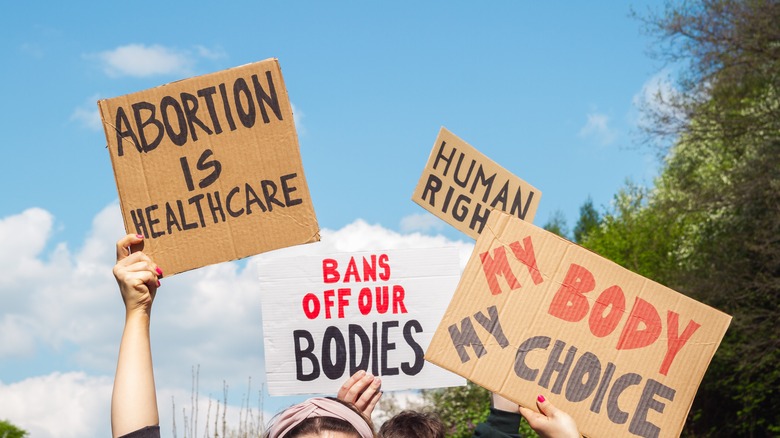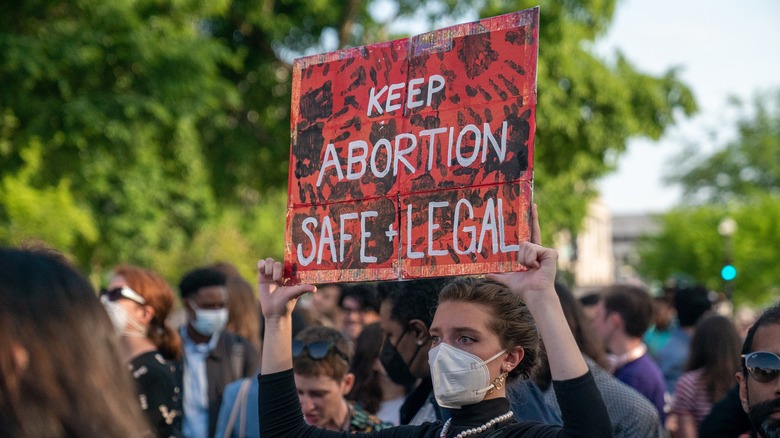An Ohio Judge Just Weighed In On The Six-Week Abortion Ban In A Big Way
A 2019 Ohio-wide "heartbeat" bill, which aimed to end abortion after 6 weeks of gestation (before most people even know they are pregnant), was briefly put into effect in June after the U.S. Supreme Court overturned Roe V.Wade, but it was later put on hold (via Fox 28). Now, an Ohio Judge in Hamilton County named Christian Jenkins took a stand on Friday that makes it clear the 6-week ban will not be taking effect in Ohio, at least not yet.
Ruling that abortion up to 20 weeks gestation is, for now, to remain legal and accessible in the state of Ohio, Jenkins stated that it is "simply wrong" to claim that a "right does not exist because it is not specifically listed in the (U.S.) Constitution."
Judge Jenkins' decision means that the abortion ban is officially on hold and will not go into effect while the court considers a lawsuit claiming that such a ban goes against the state constitution of Ohio.
About the lawsuit
The lawsuit in question has been brought by a number of Ohio abortion clinics represented by the ACLU of Ohio (via Fox 28). Specifically, the suit alleges that a law forbidding abortion once a fetus has a heartbeat (around 6 weeks) flies in the face of constitutional guarantees to individual liberty and equal protection under Ohio law.
A doctor who testified in support of the ACLU's case, Dr. Steven Ralston, who currently works as a maternal and fetal medicine doctor at the University of Maryland, stated that there are few and unclear exceptions written into the abortion ban, leaving doctors very concerned about providing appropriate care to patients who need it. He says doctors would need to fear losing their licenses or even facing prison time for misinterpreting the bill or for caring for patients as they see fit.
When Dr. Dennis Sullivan, a bioethics expert from a private Baptist institution, testified on behalf of the other side of the debate that life begins at conception, Judge Jenkins asked him, "My question is what allows you uniquely, or someone else uniquely, to make that judgment any better than the individual whose rights we are being asked to limit, whose autonomy we are being asked to take away?"

